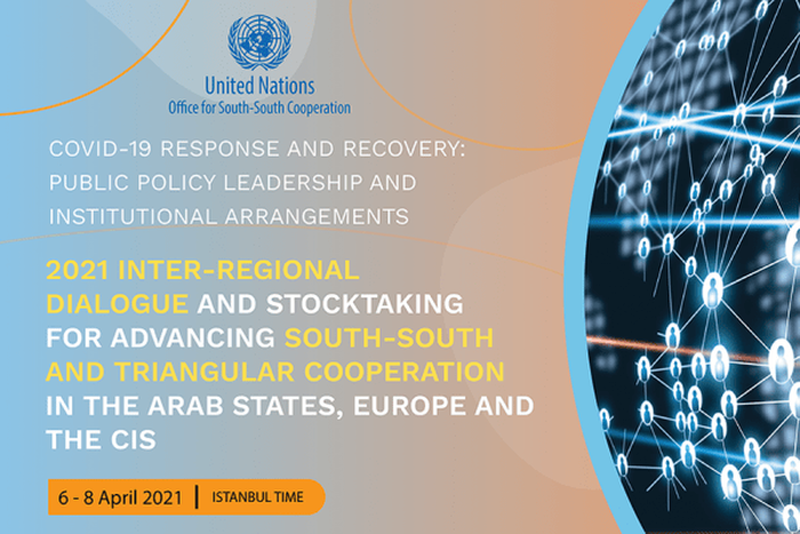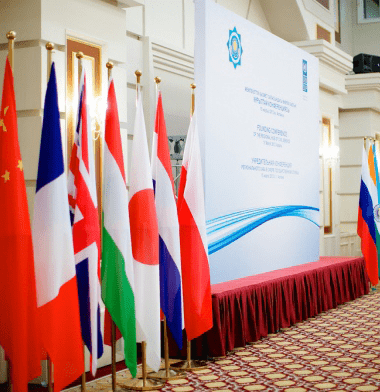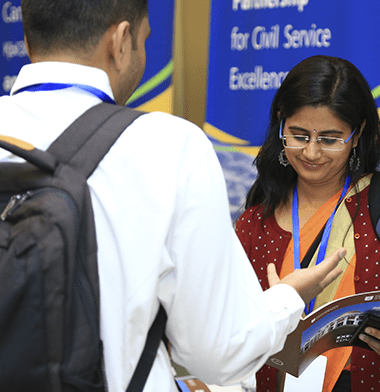ACSH shared experience in developing partnership networks and strengthening cooperation at the Inter-regional Dialogue of UNOSSC

Three-day virtual Inter-regional Dialogue was devoted to the role and necessity of the cooperation in search for responses to the COVID-19 pandemic challenges, and for ways to ensure coherence and integrations of regional and inter-regional policies and measures. The event was organized by the Division for Arab States, Europe and the CIS of the United Nations Office for South-South Cooperation (UNOSSC) and was held online on 6-8 April 2021.
Chairman of the Steering Committee of the Astana Civil Service Hub Mr. Alikhan Baimenov delivered his speech at the first session by noting that it is important for governments to be open to new ideas, employ flexible planning and implementation mechanisms, allowing them to apply best practices in a short time. Mr. Baimenov also shared the Hub’s innovative approach – a Virtual platform, that gathered various materials on the most relevant problems in the field of public administration from the ACSH participating countries and partners, including case studies, information on best practices, and links to electronic resources. These materials can be useful for both researchers and practitioners to help solve emerging problems in the field of public administration, including those caused by the COVID-19 pandemic. Reflecting to the question on how should reforms in public policy and civil service be shaped and booster progress towards sustainable development, he mentioned that “it is important for governments to consider breaking down the silos and applying the whole-of-government, and moreover the whole-of-society approach. Therefore, the development of cooperation with civil society, participatory citizenship, and an inclusive economy should be taken to the next level”.
The online event brought together high-level government officials, leading public policy experts, regional and country level senior UN representatives, representatives of international organizations and relevant think tanks, as well as other stakeholders.
Participants have also discussed the tools and types of support that have been useful in addressing key public policy challenges in the context of COVID-19 response and recovery, as well as the emerging demands that require coordinated and coherent efforts and recommend actions to overcome issues and bottlenecks.



